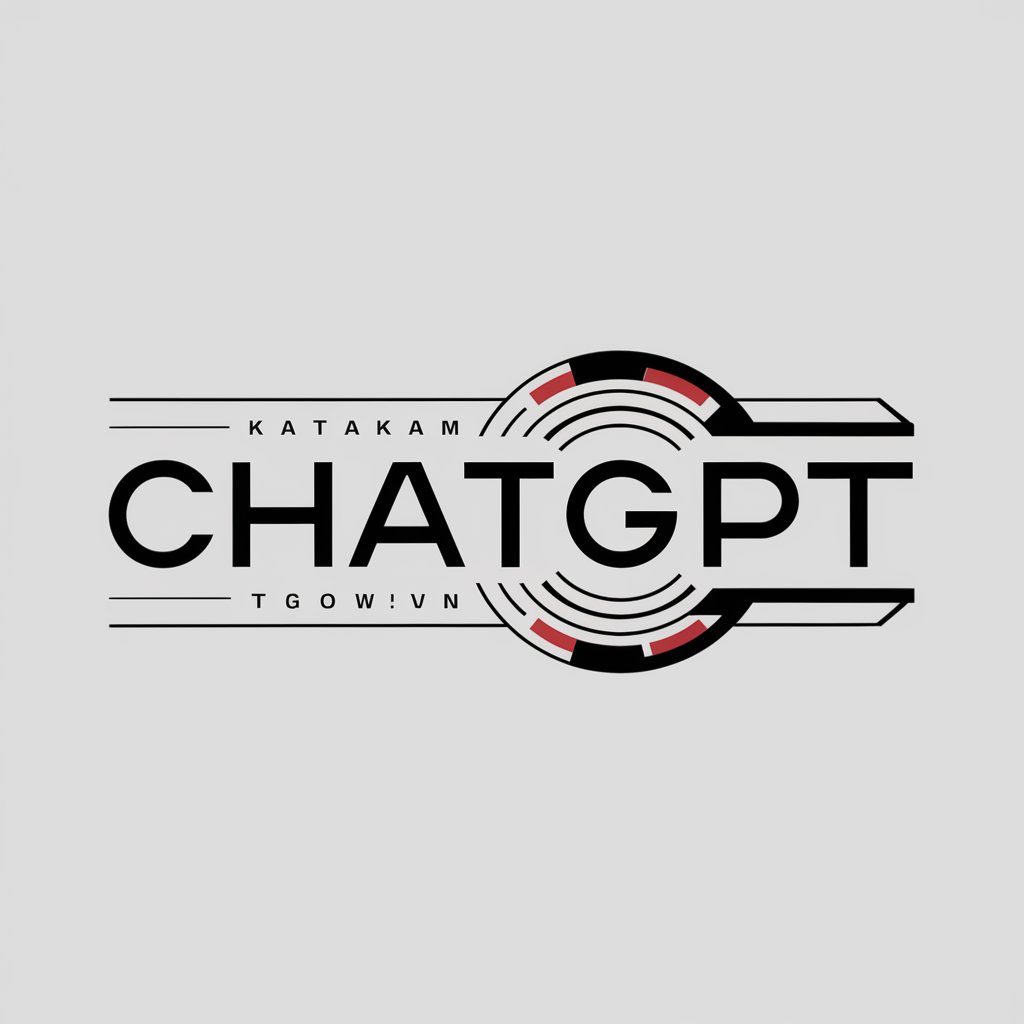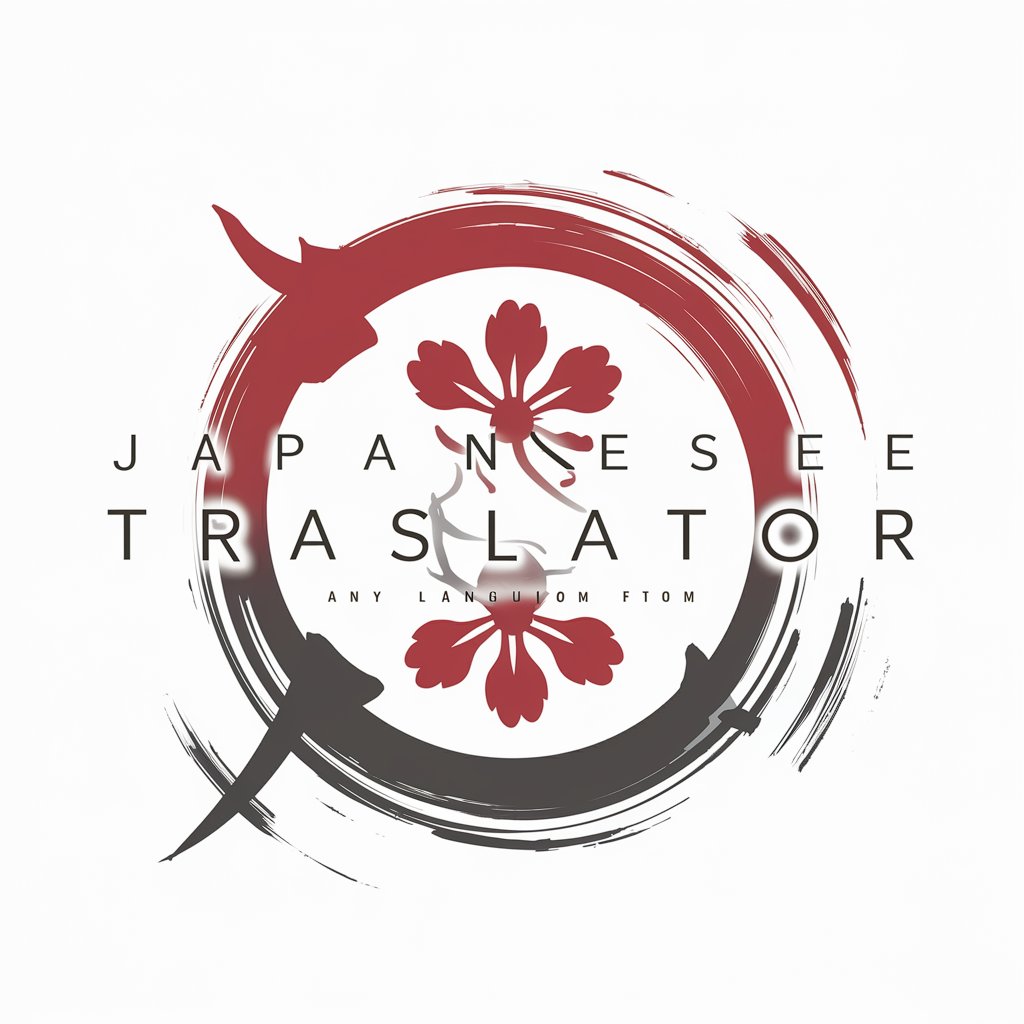
Romanization to Japanese Katakana - Katakana Conversion Tool

こんにちは!片仮名に変換しましょう。
Transforming Roman text to Katakana seamlessly.
Translate the following Romanized Japanese sentence into Katakana:
Convert these Japanese words from Hiragana to Katakana:
Please provide the Katakana equivalent of this English term:
Transform this name into Katakana script:
Get Embed Code
Introduction to Romanization to Japanese Katakana
Romanization to Japanese Katakana is a linguistic tool designed to convert Roman alphabet inputs into Japanese Katakana. Katakana is one of the three scripts used in the Japanese writing system, primarily for foreign words, names, and onomatopoeia. This conversion process involves mapping the phonetic sounds represented by the Roman letters to their closest Katakana equivalents. For example, the name 'Mario' would be converted to 'マリオ'. This functionality serves as a bridge for non-Japanese speakers to see how their names or words would be represented in Japanese, making it easier to understand pronunciation and engage with Japanese culture or language studies. Powered by ChatGPT-4o。

Main Functions of Romanization to Japanese Katakana
Name Conversion
Example
Converting the name 'Jessica' to 'ジェシカ'.
Scenario
Used by individuals wanting to see their name in Japanese for social media profiles, art projects, or personal curiosity.
Word Translation
Example
Translating the word 'coffee' to 'コーヒー'.
Scenario
Helpful for learners of the Japanese language to understand how foreign words are adopted into Japanese, aiding in vocabulary building and pronunciation practice.
Educational Support
Example
Assisting language teachers in creating materials that show the Katakana versions of English words.
Scenario
Used in educational settings, such as language schools or online courses, to provide students with resources that help bridge their native language and Japanese.
Ideal Users of Romanization to Japanese Katakana Services
Language Learners
Individuals studying Japanese can use this tool to learn how to read and pronounce words in Katakana, especially useful for understanding how non-Japanese words are adapted into the language.
Travelers
Travelers to Japan might use the service to convert their names or essential words into Katakana for easier communication, such as reading menus, signs, or filling out forms.
Content Creators
Writers, artists, and social media influencers who engage with a Japanese-speaking audience may use this service to accurately represent words or names in Katakana within their work, enhancing authenticity and engagement.

How to Use Romanization to Japanese Katakana
Start Your Journey
Initiate your experience by visiting yeschat.ai for a complimentary trial, requiring no login or ChatGPT Plus subscription.
Understand the Basics
Familiarize yourself with the Romanization system being used (e.g., Hepburn, Kunrei-shiki, or Nihon-shiki) as this will influence the katakana output.
Prepare Your Text
Ensure your text is correctly romanized. For accuracy, double-check spelling and syllable separation to match the intended katakana representation.
Use the Conversion Tool
Input your romanized text into the conversion tool. The system will automatically translate your text into katakana. For longer texts, consider breaking them into smaller segments for easier processing.
Review and Edit
After conversion, review the katakana output for accuracy. Use the tool's editing features to make any necessary adjustments for correct representation.
Try other advanced and practical GPTs
Real Science
Unveiling the universe with AI-powered insights.

就活アドバイザー25年卒❗️
Empowering your job search with AI

Code Interpreter Guy
Empowering code exploration with AI

Mr. AltMan
Bringing Images to Words with AI

La tía Tatis
Mimicking political wit with AI

IntervueIQ
Streamlining Recruitment with AI

Shakespeare Translator
Demystifying Shakespeare with AI

Vincent (Starry Starry Night) meaning?
Empowering creativity with AI.

火星市集
Empowering Creativity with AI

Visual Genius
Empowering creativity with AI-driven design

Punchliner
Crafting Your Emotions into Lyrics

言い換えサイト
Revolutionize Writing with AI

Q&A on Romanization to Japanese Katakana
What is Romanization to Japanese Katakana conversion?
It's a process that translates Roman alphabet inputs into Japanese Katakana characters, commonly used for foreign words, names, and for educational purposes to help learners grasp Japanese pronunciation.
Can I convert whole sentences using this tool?
Yes, you can convert entire sentences. However, for optimal results, ensure your input is accurately romanized and consider breaking very long sentences into smaller segments.
How accurate is the conversion?
Accuracy depends on the romanization system used and the input quality. The tool aims for high fidelity but reviewing and making adjustments post-conversion is recommended for best results.
Is this tool helpful for Japanese language learners?
Absolutely. It aids learners in understanding the pronunciation of Japanese words and phrases, facilitating better learning and pronunciation skills over time.
Can I use this tool for professional translation work?
While useful for getting katakana representations of foreign words, professional translations require context understanding and cultural nuance that goes beyond simple character conversion.





